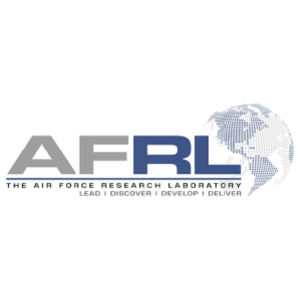Air Force Research Laboratory
Dayton, Ohio
Company Size: ~11,500
Anticipated number of internship positions: 4
Opportunity for remote/virtual internship in 2022: Potentially, but not guaranteed. Internship location is primarily based at Wright-Patternson Air Force Base, Dayton, OH, with additional possibility of research location at Joint Base San Antonio-Fort Sam Houston, San Antonio, TX.
http://www.afresearchlab.com/
About AFRL
The Air Force Research Laboratory (AFRL) is the premier research institution for the Department of Air Force. AFRL leads the discovery, development and delivery of warfighting technologies for our air, space and cyberspace forces. We’re pushing the boundaries and creating a new tomorrow through unparalleled research. AFRL is composed of 9 Technical Directorates with synthetic biology research being conducted in the Materials and Manufacturing Directorate, 711 th Human Performance Wing, and Aerospace Systems Directorate. Research conducted in the Materials and Manufacturing Directorate focuses on biomaterials, biopolymers, biosensors, biodegradation, biocorrosion, bioinformatics, metabolic engineering, organism engineering, critical metal bio-acquisition, and biocementation process. Research conducted in the 711 th Human Performance wing centers around human microbiome, RNA aptamers, gene regulation, organ-on-a-chip, toxicology, and human physiology. Research conducted in the Aerospace Systems Directorate targets development in high-density energy fuel, biofuel fouling, and critical metal bio-acquisition.
AFRL prides itself for its collaborative spirit. The AFRL Biotech Community of Practice brings together all research groups focusing on bio-oriented research. The leadership at AFRL strives to make AFRL a diverse and highly inclusive environment.
Internship Project Description
–This description represents a potential internship project and is subject to change.–
(Updated 11/1/2021)
AFRL is leveraging advances in synthetic biology to optimize Airmen performance and health, and to develop next-generation materials to provide an asymmetric advantage to our warfighters and weapon systems. Synthetic biology, where biosciences, information sciences and engineering converge, provides ways of creating materials and manipulating biological process for sensing and improving airman performance. AFRL is part of larger DoD effort (in collaboration with Army and Navy) in exploiting synthetic biology for Defense applications. Potential project areas include, but not limited to:
- Engineering of probiotics to modulate cortisol levels
- Microbial organism engineering for biocementation-based infrastructure construction
- Critical metal bio-acquisition
- Biodegradation
- Bioinformatics of biocontamination/biocorrosion
- Novel biomaterial production
- RNA aptamer-based gene regulation
- High-throughput protein engineering
- Microbial-based structural coloration
- Melanin as a multi-functional material
- Microfluidic-based organ-on-a-chip
- Gut-brain axis interaction
- Novel DoD-relevant small molecules
- Biofilm-based material production platform
- Human microbiome modulation
- Metabolic pathway engineering
- Microbial organism engineering
- Molecular modeling / molecular dynamic simulation
- Environmental impact on human physiology
- Systems biology
- AI/ML
- Biosensors
- Biomaterials development
Professional Development Opportunities: With diverse research/engineering disciplines at AFRL, interns have the opportunity to interact and work closely with scientists/engineers outside of biological field. Opportunities also exist for interns to interact with military leaders through VIP tours in the technical directorates. As scientists at AFRL often collaborate with those at the other Service Labs (Navy Research Lab, DEVCOM Army Research Laboratory, DEVCOM Chemical Biological Center, etc.), interns might have the opportunity to interact with researchers at other DoD laboratories. EBRC interns at AFRL will also gain a better understanding of working in a DoD lab and Service Lab cultures.
